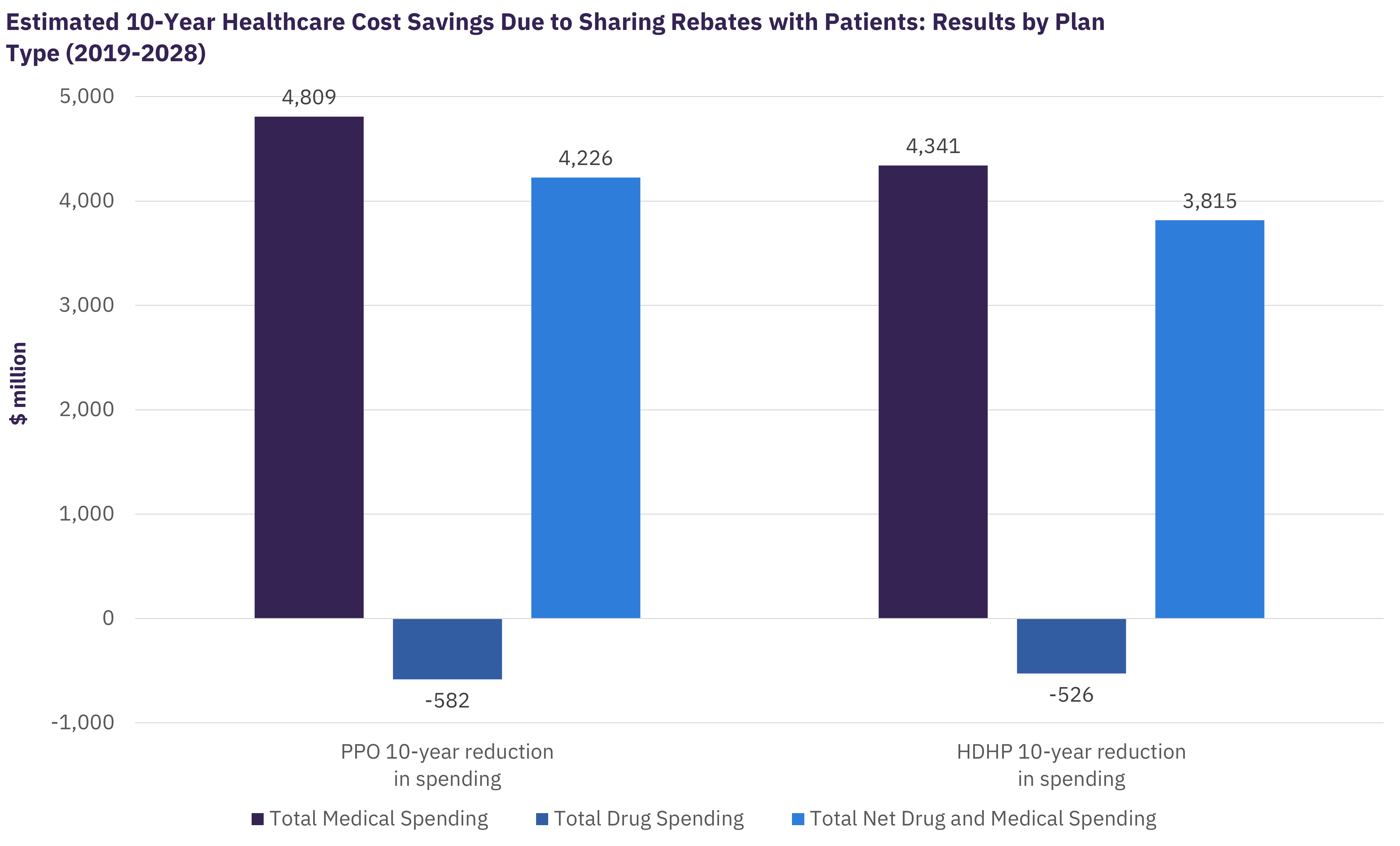Impact of Passing Through Negotiated Rebates for Oral Antidiabetic Drugs (OADs) on Projected 10-Year Medical Costs
-
The total economic cost of diagnosed Diabetes Mellitus (DM) in the US reached $327 billion in 2017—$237 billion in direct medical costs and $90 billion in reduced productivity
-
Sharing negotiated manufacturer rebates directly with patients could offer an opportunity to substantially reduce cost-related barriers and improve access to medicines for many patients
-
GlobalData estimates that passing through rebates at the pharmacy could improve health outcomes, thereby generating 10-year drug and medical savings of $8 billion among commercially insured patients
Impact of Passing Through Negotiated Rebates for Oral Antidiabetic Drugs (OADs) on Projected 10-Year Medical Costs

The Centers for Disease Control and Prevention estimates that 13% of all the US adults have diabetes, and even more meet criteria for prediabetes. Aside from its pervasive nature, it is known that diabetes presents a substantial health and economic burden that disproportionately affects Black, Native American/Alaskan Native, and Hispanic populations. A study commissioned by the American Diabetes Association reports that diagnosed diabetes cost the nation $327 billion in 2017, including $237 billion in direct medical costs and $90 billion in reduced productivity. The study also noted that there are differences in diabetes-related health expenditures across race and ethnicity groups; for example, Black patients with diabetes incur 7% higher diabetes-attributed healthcare expenditures on average compared to white patients. Disparities in diabetes outcomes arise, in great part, from the inequities in the healthcare system, which can be exemplified and exacerbated through inequitable access to essential diabetes medications. Extensive evidence links better medicine adherence to reduced diabetes complications, lower medical spending, and lower mortality.
Disparities in diabetes outcomes arise, in great part, from the inequities in the healthcare system, which can be exemplified and exacerbated through inequitable access to essential diabetes medications. Extensive evidence links better medicine adherence to reduced diabetes complications, lower medical spending, and lower mortality. Research suggests that Black and Hispanic patients with diabetes are more likely to experience lower quality of care, greater barriers to diabetes management care, and cost-related medication non-adherence compared with white patients. High out-of-pocket costs for diabetes medicines are key barriers to taking prescribed medicines that can reduce risk of diabetes complications, hospitalization and emergency visits, and associated healthcare costs. One option to reduce patient out-of-pocket costs is to restructure how health plans share negotiated rebates, discounts, and other payments received from pharmaceutical manufacturers with insured patients. As currently structured, these price concessions are often not accounted for in determining out-of-pocket costs for medicines. Sharing negotiated rebates directly with patients would substantially reduce patient out-of-pocket costs, while also alleviating a major barrier affecting access to medicines for disadvantaged populations.
To demonstrate the potential long-term impact of passing through negotiated rebates directly to patients, GlobalData estimated the population-level ten-year savings. This calculation accounts for forecasted growth in costs and population using brand OAD medications. Based on historical spending, GlobalData models 14% growth in total health expenditure per 5-years after adjusting for inflation and prevalence.
GlobalData analysis indicates that passing through negotiated rebates directly to patients could reduce total aggregate drug and medical spending among commercially insured patients using brand OADs by $8 billion (4.9%) over 10 years. The projected 10-year impacts are relatively larger in percentage terms for some racial minority groups compared to the overall average.
Projected savings differ somewhat across High-Deductible Health Plan (HDHP) and Preferred Provider Organization (PPO) plans. GlobalData’s report on “The Impact of Sharing Manufacturer Rebates for Oral Anti-Diabetic Medications at the Point of Sale with Patients in the Commercial Market” projects that passing through negotiated rebates to patients could reduce total aggregate drug and medical spending among patients using brand OAD in HDHP plans by $3.8 billion (5.4%) and reduce spending by patients using brand OAD in PPO plans by $4.2 billion (4.6%) over 10 years. For patients in both types of plans, OOP cost for drugs declines while plan costs rise. However, total medical spending declines for both HDHP and PPO plans.
Related Data & Insights
Related Companies
United States of America
United States of America
China
Switzerland
United States of America
United States of America
United States of America
United States of America
Germany
France
Don’t wait - discover a universe of connected data & insights with your next search. Browse over 28M data points across 22 industries.
Access more premium companies when you subscribe to Explorer
Get in touch about GlobalData Company reports
Contact the team or request a demo to find out how our data can drive your business forward